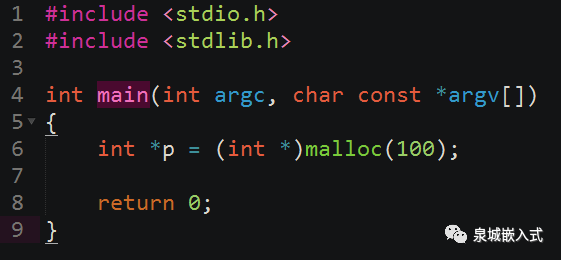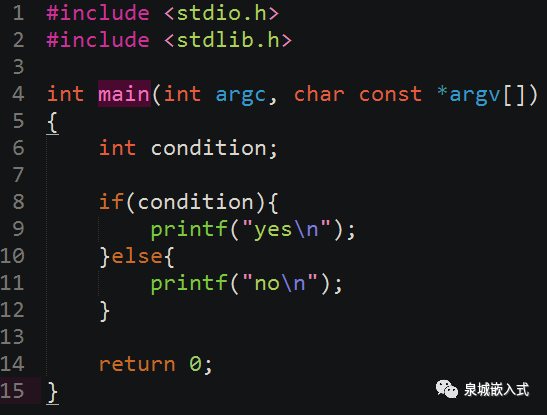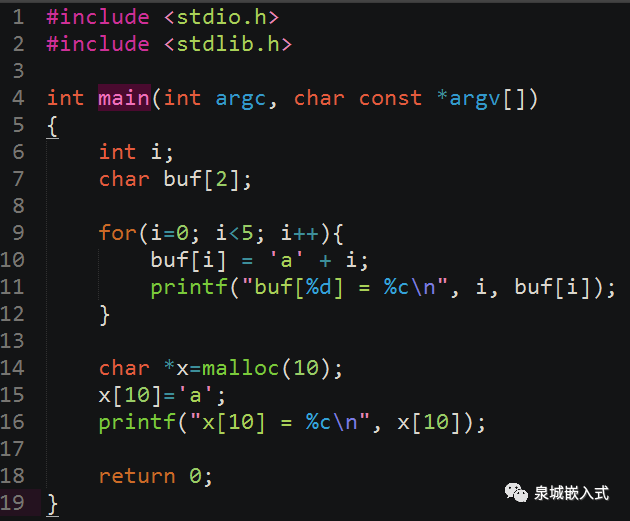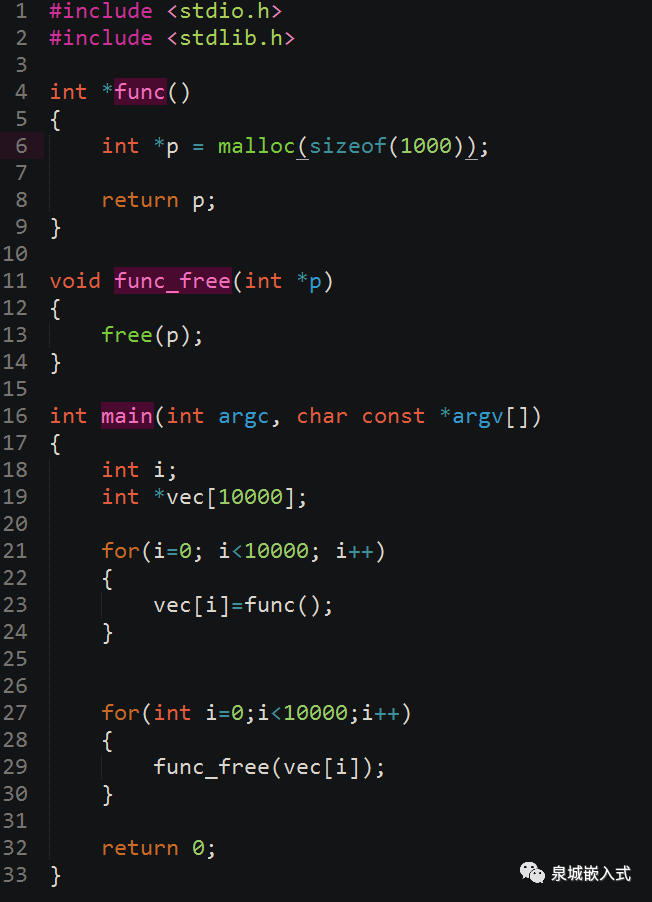
1
Installing Valgrind
-
First, extract the source package
tar xjf valgrind-3.13.0.tar.bz2
-
Enter the extracted directory and execute the configuration file
cd valgrind-3.13.0/
./configure
checking for a BSD-compatible install... /usr/bin/install -c
checking whether build environment is sane... yes
checking for a thread-safe mkdir -p... /bin/mkdir -p
checking for gawk... gawk
checking whether make sets $(MAKE)... yes
checking whether make supports nested variables... yes
checking whether to enable maintainer-specific portions of Makefiles... no
checking whether ln -s works... yes
...
-
After successful configuration, execute make to compile
make
-
Then install it
make install
2
Memory Leak Detection

gcc test1.c -g -o test1
$ valgrind --tool=memcheck --leak-check=full ./test1
==2473== Memcheck, a memory error detector
==2473== Copyright (C) 2002-2017, and GNU GPL'd, by Julian Seward et al.
==2473== Using Valgrind-3.13.0 and LibVEX; rerun with -h for copyright info
==2473== Command: ./test1
==2473==
==2473==
==2473== HEAP SUMMARY:
==2473== in use at exit: 100 bytes in 1 blocks
==2473== total heap usage: 1 allocs, 0 frees, 100 bytes allocated
==2473==
==2473== 100 bytes in 1 blocks are definitely lost in loss record 1 of 1
==2473== at 0x4C2DBF6: malloc (vg_replace_malloc.c:299)
==2473== by 0x40053E: main (test1.c:6)
==2473==
==2473== LEAK SUMMARY:
==2473== definitely lost: 100 bytes in 1 blocks
==2473== indirectly lost: 0 bytes in 0 blocks
==2473== possibly lost: 0 bytes in 0 blocks
==2473== still reachable: 0 bytes in 0 blocks
==2473== suppressed: 0 bytes in 0 blocks
==2473==
==2473== For counts of detected and suppressed errors, rerun with: -v
==2473== ERROR SUMMARY: 1 errors from 1 contexts (suppressed: 0 from 0)
3
Detection of Misusing Uninitialized Variables

gcc test2.c -g -o test2
$ valgrind ./test2
==5814== Memcheck, a memory error detector
==5814== Copyright (C) 2002-2017, and GNU GPL'd, by Julian Seward et al.
==5814== Using Valgrind-3.13.0 and LibVEX; rerun with -h for copyright info
==5814== Command: ./test2
==5814==
==5814== Conditional jump or move depends on uninitialised value(s)
==5814== at 0x400539: main (test2.c:8)
4
Memory Access Out Of Bounds Detection

$ ./test3
buf[0] = a
buf[1] = b
buf[2] = c
buf[3] = d
buf[4] = e
x[10] = a
$ valgrind ./test3
==8528== Invalid write of size 1
==8528== at 0x40064F: main (test3.c:15)
==8528== Address 0x520448a is 0 bytes after a block of size 10 alloc'd
==8528== at 0x4C2DBF6: malloc (vg_replace_malloc.c:299)
==8528== by 0x400642: main (test3.c:14)
==8528==
==8528== Invalid read of size 1
==8528== at 0x40065A: main (test3.c:16)
==8528== Address 0x520448a is 0 bytes after a block of size 10 alloc'd
==8528== at 0x4C2DBF6: malloc (vg_replace_malloc.c:299)
==8528== by 0x400642: main (test3.c:14)
==8528==
5
Using the Massif Tool

$ valgrind --tool=massif ./test4
==10727== Massif, a heap profiler
==10727== Copyright (C) 2003-2017, and GNU GPL'd, by Nicholas Nethercote
==10727== Using Valgrind-3.13.0 and LibVEX; rerun with -h for copyright info
==10727== Command: ./test4
==10727==
==10727==
ms_print massif.out.10727
ms_print massif.out.10727 > log.txt
--------------------------------------------------------------------------------
Command: ./test4
Massif arguments: (none)
ms_print arguments: massif.out.10727
--------------------------------------------------------------------------------
KB
234.4^ #
| :#:
| :::#:::
| :::::#::::@
| ::::::#::::@:
| ::::::::#::::@:::
| ::::::::::#::::@::::
| :::::::::::#::::@::::::
| :::::::::::::#::::@::::::::
| :@:::::::::::::#::::@:::::::::
| ::@:::::::::::::#::::@:::::::::@:
| :::@:::::::::::::#::::@:::::::::@::
| :@:::@:::::::::::::#::::@:::::::::@::::
| :::@:::@:::::::::::::#::::@:::::::::@::::::
| @::::@:::@:::::::::::::#::::@:::::::::@::::::@
| ::@::::@:::@:::::::::::::#::::@:::::::::@::::::@:
| :::@::::@:::@:::::::::::::#::::@:::::::::@::::::@:::
| :::::@::::@:::@:::::::::::::#::::@:::::::::@::::::@:::::
| :::::::@::::@:::@:::::::::::::#::::@:::::::::@::::::@::::::@
| @:::::::@::::@:::@:::::::::::::#::::@:::::::::@::::::@::::::@:
0 +----------------------------------------------------------------------->Mi
0 0.998
Number of snapshots: 83
Detailed snapshots: [2, 4, 13, 18, 23, 39 (peak), 44, 58, 68, 78]
--------------------------------------------------------------------------------
n time(i) total(B) useful-heap(B) extra-heap(B) stacks(B)
--------------------------------------------------------------------------------
0 0 0 0 0 0
1 102,636 24 4 20 0
2 112,338 4,776 796 3,980 0
16.67% (796B) (heap allocation functions) malloc/new/new[], --alloc-fns, etc.
->16.67% (796B) 0x4005E6: func (test4.c:6)
->16.67% (796B) 0x400648: main (test4.c:23)
--------------------------------------------------------------------------------
n time(i) total(B) useful-heap(B) extra-heap(B) stacks(B)
--------------------------------------------------------------------------------
3 124,882 10,920 1,820 9,100 0
4 141,738 19,176 3,196 15,980 0
16.67% (3,196B) (heap allocation functions) malloc/new/new[], --alloc-fns, etc.
->16.67% (3,196B) 0x4005E6: func (test4.c:6)
->16.67% (3,196B) 0x400648: main (test4.c:23)
--------------------------------------------------------------------------------
n time(i) total(B) useful-heap(B) extra-heap(B) stacks(B)
--------------------------------------------------------------------------------
5 154,282 25,320 4,220 21,100 0
6 166,826 31,464 5,244 26,220 0
7 179,370 37,608 6,268 31,340 0
8 191,914 43,752 7,292 36,460 0
9 204,458 49,896 8,316 41,580 0
10 217,002 56,040 9,340 46,700 0
11 229,546 62,184 10,364 51,820 0
12 242,090 68,328 11,388 56,940 0
13 259,338 76,776 12,796 63,980 0
16.67% (12,796B) (heap allocation functions) malloc/new/new[], --alloc-fns, etc.
->16.67% (12,796B) 0x4005E6: func (test4.c:6)
->16.67% (12,796B) 0x400648: main (test4.c:23)
--------------------------------------------------------------------------------
n time(i) total(B) useful-heap(B) extra-heap(B) stacks(B)
--------------------------------------------------------------------------------
14 271,882 82,920 13,820 69,100 0
15 284,426 89,064 14,844 74,220 0
16 296,970 95,208 15,868 79,340 0
17 309,514 101,352 16,892 84,460 0
18 322,058 107,496 17,916 89,580 0
16.67% (17,916B) (heap allocation functions) malloc/new/new[], --alloc-fns, etc.
->16.67% (17,916B) 0x4005E6: func (test4.c:6)
->16.67% (17,916B) 0x400648: main (test4.c:23)
--------------------------------------------------------------------------------
n time(i) total(B) useful-heap(B) extra-heap(B) stacks(B)
--------------------------------------------------------------------------------
19 334,602 113,640 18,940 94,700 0
20 347,146 119,784 19,964 99,820 0
21 359,690 125,928 20,988 104,940 0
22 372,234 132,072 22,012 110,060 0
23 384,778 138,216 23,036 115,180 0
16.67% (23,036B) (heap allocation functions) malloc/new/new[], --alloc-fns, etc.
->16.67% (23,036B) 0x4005E6: func (test4.c:6)
->16.67% (23,036B) 0x400648: main (test4.c:23)
--------------------------------------------------------------------------------
n time(i) total(B) useful-heap(B) extra-heap(B) stacks(B)
--------------------------------------------------------------------------------
24 397,322 144,360 24,060 120,300 0
25 409,866 150,504 25,084 125,420 0
26 422,410 156,648 26,108 130,540 0
27 434,954 162,792 27,132 135,660 0
28 447,498 168,936 28,156 140,780 0
29 460,042 175,080 29,180 145,900 0
30 472,586 181,224 30,204 151,020 0
31 485,130 187,368 31,228 156,140 0
32 497,674 193,512 32,252 161,260 0
33 510,218 199,656 33,276 166,380 0
34 522,762 205,800 34,300 171,500 0
35 535,306 211,944 35,324 176,620 0
36 547,850 218,088 36,348 181,740 0
37 560,394 224,232 37,372 186,860 0
38 572,938 230,376 38,396 191,980 0
39 593,642 240,000 40,000 200,000 0
16.67% (40,000B) (heap allocation functions) malloc/new/new[], --alloc-fns, etc.
->16.67% (40,000B) 0x4005E6: func (test4.c:6)
->16.67% (40,000B) 0x400648: main (test4.c:23)
--------------------------------------------------------------------------------
n time(i) total(B) useful-heap(B) extra-heap(B) stacks(B)
--------------------------------------------------------------------------------
40 606,246 233,400 38,900 194,500 0
41 618,850 226,824 37,804 189,020 0
42 631,454 220,248 36,708 183,540 0
43 644,058 213,672 35,612 178,060 0
44 656,662 207,096 34,516 172,580 0
16.67% (34,516B) (heap allocation functions) malloc/new/new[], --alloc-fns, etc.
->16.67% (34,516B) 0x4005E6: func (test4.c:6)
->16.67% (34,516B) 0x400648: main (test4.c:23)
--------------------------------------------------------------------------------
n time(i) total(B) useful-heap(B) extra-heap(B) stacks(B)
--------------------------------------------------------------------------------
45 669,266 200,520 33,420 167,100 0
46 681,870 193,944 32,324 161,620 0
47 694,474 187,368 31,228 156,140 0
48 707,078 180,792 30,132 150,660 0
49 725,984 170,928 28,488 142,440 0
50 735,690 165,864 27,644 138,220 0
51 745,396 160,800 26,800 134,000 0
52 755,102 155,736 25,956 129,780 0
53 764,808 150,672 25,112 125,560 0
54 774,514 145,608 24,268 121,340 0
55 784,220 140,544 23,424 117,120 0
56 793,926 135,480 22,580 112,900 0
57 803,632 130,416 21,736 108,680 0
58 813,338 125,352 20,892 104,460 0
16.67% (20,892B) (heap allocation functions) malloc/new/new[], --alloc-fns, etc.
->16.67% (20,892B) 0x4005E6: func (test4.c:6)
->16.67% (20,892B) 0x400648: main (test4.c:23)
--------------------------------------------------------------------------------
n time(i) total(B) useful-heap(B) extra-heap(B) stacks(B)
--------------------------------------------------------------------------------
59 823,044 120,288 20,048 100,240 0
60 832,750 115,224 19,204 96,020 0
61 842,456 110,160 18,360 91,800 0
62 852,162 105,096 17,516 87,580 0
63 861,868 100,032 16,672 83,360 0
64 871,574 94,968 15,828 79,140 0
65 881,280 89,904 14,984 74,920 0
66 890,986 84,840 14,140 70,700 0
67 900,692 79,776 13,296 66,480 0
68 910,398 74,712 12,452 62,260 0
16.67% (12,452B) (heap allocation functions) malloc/new/new[], --alloc-fns, etc.
->16.67% (12,452B) 0x4005E6: func (test4.c:6)
->16.67% (12,452B) 0x400648: main (test4.c:23)
--------------------------------------------------------------------------------
n time(i) total(B) useful-heap(B) extra-heap(B) stacks(B)
--------------------------------------------------------------------------------
69 920,104 69,648 11,608 58,040 0
70 929,810 64,584 10,764 53,820 0
71 939,516 59,520 9,920 49,600 0
72 949,222 54,456 9,076 45,380 0
73 958,928 49,392 8,232 41,160 0
74 968,634 44,328 7,388 36,940 0
75 978,340 39,264 6,544 32,720 0
76 988,046 34,200 5,700 28,500 0
77 997,752 29,136 4,856 24,280 0
78 1,007,458 24,072 4,012 20,060 0
16.67% (4,012B) (heap allocation functions) malloc/new/new[], --alloc-fns, etc.
->16.67% (4,012B) 0x4005E6: func (test4.c:6)
->16.67% (4,012B) 0x400648: main (test4.c:23)
--------------------------------------------------------------------------------
n time(i) total(B) useful-heap(B) extra-heap(B) stacks(B)
--------------------------------------------------------------------------------
79 1,017,164 19,008 3,168 15,840 0
80 1,026,870 13,944 2,324 11,620 0
81 1,036,576 8,880 1,480 7,400 0
82 1,046,282 3,816 636 3,180 0
6
Using Valgrind on Development Boards
tar xjf valgrind-3.13.0.tar.bz2
cd valgrind-3.13.0/
mkdir install
./configure --host=arm-linux --prefix=$PWD/install
make
make install
valgrind-3.13.0/install/bin$ ls
callgrind_annotate cg_annotate cg_merge valgrind valgrind-listener
callgrind_control cg_diff ms_print valgrind-di-server vgdb
valgrind: Fatal error at startup: a function redirection
valgrind: which is mandatory for this platform-tool combination
valgrind: cannot be set up. Details of the redirection are:
valgrind:
valgrind: A must-be-redirected function
valgrind: whose name matches the pattern: strcmp
valgrind: in an object with soname matching: ld-linux-armhf.so.3
valgrind: was not found whilst processing
valgrind: symbols from the object with soname: ld-linux-armhf.so.3
valgrind:
valgrind: Possible fixes: (1, short term): install glibc's debuginfo
valgrind: package on this machine. (2, longer term): ask the packagers
valgrind: for your Linux distribution to please in future ship a non-
valgrind: stripped ld.so (or whatever the dynamic linker .so is called)
valgrind: that exports the above-named function using the standard
valgrind: calling conventions for this platform. The package you need
valgrind: to install for fix (1) is called
valgrind:
valgrind: On Debian, Ubuntu: libc6-dbg
valgrind: On SuSE, openSuSE, Fedora, RHEL: glibc-debuginfo
valgrind:
valgrind: Note that if you are debugging a 32 bit process on a
valgrind: 64 bit system, you will need a corresponding 32 bit debuginfo
valgrind: package (e.g. libc6-dbg:i386).
valgrind:
valgrind: Cannot continue -- exiting now. Sorry.
END
Recommended Reading:

Embedded Linux
Scan the QR code to follow my public account